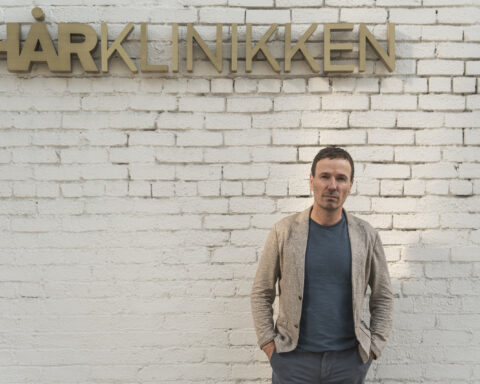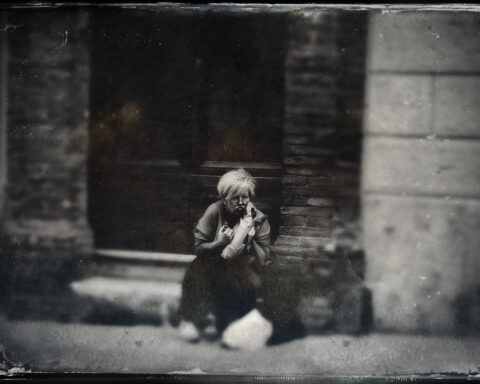we were children, we have all heard the advice to pause or breathe to encourage more sensible decisions.
And as more mindfulness and meditation influences becomes available to us in the form of apps, social media and other resources, that recommendation has now evolved into a “mindful pause.”
But we’re always pausing and breathing, aren’t we? So what does it actually mean?
Frann Altman, PsyD, LMFT, was senior clinical provider in the Addiction Medicine department of Kaiser Permanente in Los Angeles for 20 years. She has also worked extensively as a therapist with families and couples and was a regular contributor to mental health discussions in entertainment industry magazine Backstage.
Here she answers the question: “What the f*** is a mindful pause?” And she explains why it is one of the most important lessons mindfulness and meditation practice can teach us.
One piece of advice I would give to men in particular, but women as well, as we enter our adult years is to pay more attention to being present in our own bodies. Let’s call it our spirit or essence.
Our hormones are so provocative in our early years that they drive what we see and where we go. We make choices from the wrong parts of our bodies sometimes. We often give our business decisions more consideration then we give our personal relations.
But a mindful pause is a way to check in with feelings, emotions and principles and make a measured decisions for ourselves and others around us. It’s as simple as taking a deep breath and slowing down for a moment, and identifying what is going on inside us before we take the next step forward.
It is wonderful that more and more of us are embracing, or trying to embrace, the world of mindfulness and meditation. There are lots of great resources and techniques out there, including the popular apps like Headspace, where we are guided through a meditation by a voice in our headphones, and also services offered free by universities like UCLA. And there’s also mindfulness meditation, which I do with a group online daily, that is more focussed on just sitting still and in silence with our own breath and paying attention to our bodies and thoughts without judgements. It allows us to be in the moment as best we can.
These are all great tools, and much of this practice teaches us to be present in the here and now. This is excellent and fundamental advice, as if we live in yesterday or tomorrow we miss today.
But we should also spare a thought for the future and the direction we are heading. And we can do that in a mindful pause before we act without thoughts and intention.
Working in addiction medicine and with families and couples, the pause is really key. Take that mindful deep breath and ground ourselves, feel where our feet are planted and where we are. And then ask ourselves a question: ‘Is this really what I want to do?’ And it might be yes. But it also might be no. Then either stop ourselves or stimulate ourself to move forward.
It could be as simple as wearing a rubber band around the wrist, which is a technique we sometimes used in addiction medicine. Before we do the thing that we automatically do, and that we’re complaining a lot about, we snap the band to see what it is that we’re feeling. And we give ourselves that moment to take a pause. In recovery, we would ask people to just put off wanting to use for 30 seconds, and then a minute or five, one moment at a time.
This goes back to the three ways of learning which I find so pertinent. When we are younger, we put our hands in the fire to learn that it burns. In middle age, we’ve had some experiences and can watch someone else put their hand in the fire and not feel the need to throw ourselves into the mix. When we are older, we might hunger for the younger days of the fire, but we know it won’t serve us because we can take a pause and weigh our competing desires against the potential outcomes.
It’s now more important than ever in this crazy, provoking world. And of course, when one is strained and stressed — whether that’s from pandemic fear, quarantine, financial uncertainty, relationship stressors or other issues in our society — it’s all the more important to take that pause, ground ourselves and send oxygen into our lungs, and redirect the energy into self-care and healthy expression.
And not put ourselves in the position of having to beg for forgiveness after the event. It can be hard to take back spoken harsh words. The less regrets in life the better.
Sometimes that pause is the thing that saves us from telling our boss or partner to just park it where the sun don’t shine. Or prevents us from picking up that destructive old habit again. Start to question: ‘Will this get me what I want?’ This is what people do in business – take a moment to consider whether the next venture is worthwhile or not – so maybe we should bring more of that business thinking into our lives.
But the pause is not always to stop us doing something, as ruminating too much can be as bad as rushing in without any thought. We can miss a moment as much as you overrun the moment. Sometimes, putting the pause aside, we grab that child who is running into the street because instinct for survival takes over.
Of course, there is no one fits all rule. There never is. It’s a very complex world right now and our emotions and feelings are driving that confusion — but by taking a mindful pause we have more chance of heading in the right direction.











